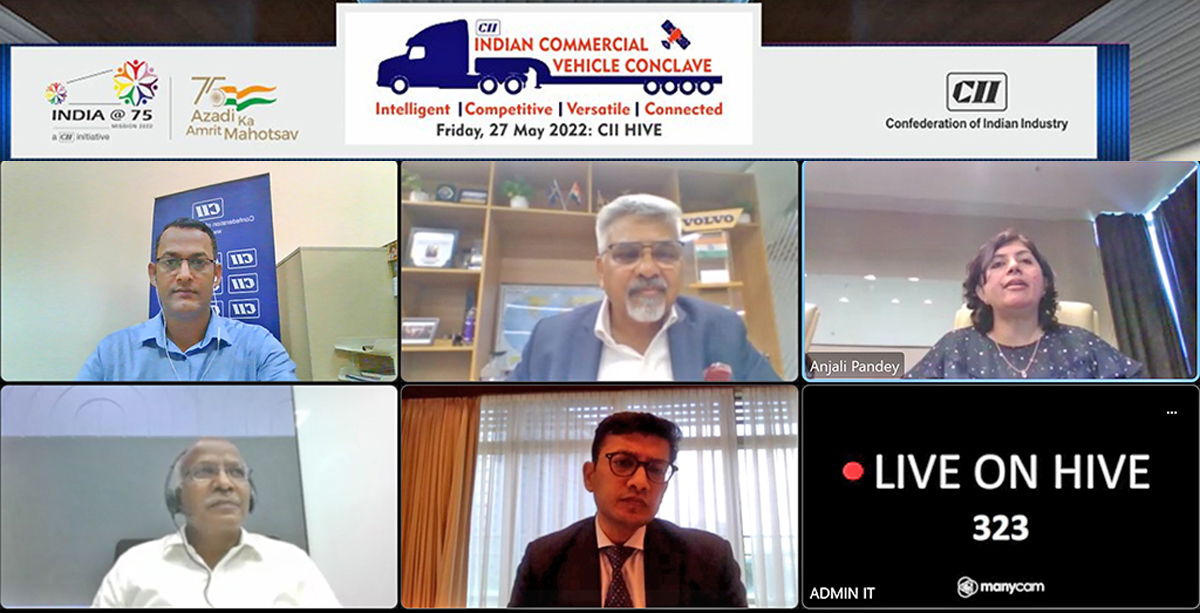The increase in demand for commercial vehicles in the next few years will have a ‘multiplier effect’ on the income and employment prospects of the entire extended value chain, point out industry experts

India is the seventh-largest commercial vehicle (CV) manufacturer in the world, accounting for around 3.5% of the global CV production, and is one of the largest exporters of CVs. During the last two years, the pandemic offered an opportunity for the Indian CV industry to re-imagine business processes by leaning on new emerging technologies and business opportunities. The first edition of the CII Indian Commercial Vehicle Conclave sought to create a platform for deliberations on future strategies for the CV industry, ongoing regulations, expectations from the government, supply chain and logistics, emerging technologies, comprehensive electrification, alternate fuels and the future of mobility.
“Collaborations and partnerships will form the key to future success of the Indian CV industry,” said Kamal Bali, President and Managing Director, Volvo Group India. Elaborating, Bali emphasised that competitors must join hands and take advantage of the growth of demand created on account of sustainability imperatives and arising opportunities from mega trends in automation. Speaking on the occasion, Abhimanyu Sharaff, Chairman, CII Faridabad Zone and Executive Director, Vikas Group, said that to capitalise on the emerging opportunities and to overcome associated challenges, the Indian CV industry needs to develop or acquire new technologies and capabilities to produce vehicles that meet future market needs.
In his remarks, P Kaniappan, Managing Director, ZF Commercial Vehicle Control Systems, said that agility and speed fundamentals were the need of the hour to be at par with the new products in the Indian CV industry. Anjali Pandey, Vice President (Engine and Component Business), Cummins India Ltd., shared that it had become important to come up with sustainable creative solutions which are fit for the Indian CV industry that take care of the energy security agenda of our country. Speaking on the occasion, Panch Sahadev, Head (Commercial Vehicle and Off-Road Business), Bosch Ltd., said that the mega trends affecting CV business were sustainability, globalisation, growing population and urbanisation.
The who’s who of the industry addressed the participants at the conclave which was attended by around 350 delegates. The senior industry representatives who addressed delegates included V Kamath, Managing Director, Fronius India Ltd., Michael Berger, Managing Director, Durr India, Anuj Kathuria, COO, Ashok Leyland, Diego Graffi, CMD, Piaggio Vehicle (P) Ltd., Mukund Vasudevan, Managing Director, Moglix, Lokesh Bopanna, Managing Director, Schunk Carbon Technology India, Aniruddh Kulkarni, Vice President and Head (CV Engineering), Tata Motors, and Kalyan Korimerla, Managing Director, Etrio Automobile, amongst others. Speakers at the conclave agreed that the increase in demand for CVs in the next few years will have a ‘multiplier effect’ on the income and employment prospects of the entire extended value chain.